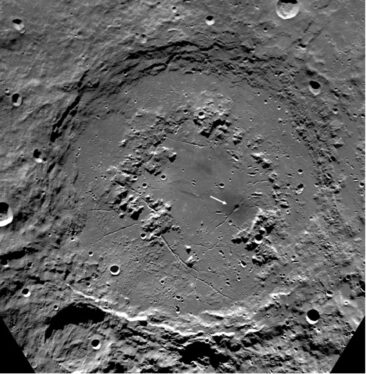A growing body of research suggests a link between epigenetic mechanisms and a wide variety of illnesses and behaviors, including cancer, cardiovascular and autoimmune illnesses, and cognitive dysfunction. Epigenetics also plays a role in the changes humans and other living things experience in space.
This phenomenon has become part of studies in a wide variety of fields, including microgravity research conducted aboard the International Space Station.
So just what is epigenetics? According to a paper from the National Institute of Environmental Health Sciences, it includes any process that alters gene activity without changing the actual DNA sequence and that leads to modifications that can pass to offspring. Essentially, it involves information added to the DNA sequence of four bases: adenine (A), guanine (G), cytosine (C), and thymine (T).
The sequence of these bases forms the genetic code for development and functioning – essentially the blueprint for every living thing. Epigenetics changes an organism by changing which genes are expressed – essentially turned on or off – without changing that basic blueprint. In other words, epigenetics results in a change through modification of gene expression rather than alteration of the genetic code itself.
Epigenetic changes can be caused by many outside stimuli, from chemicals to trauma to exercise. And unlike a genetic change or mutation, an epigenetic change can reverse if the stimulus is removed. Many epigenetic changes are positive, or even essential, but some cause serious adverse health and behavioral effects.
Years of analysis have shown that the spaceflight environment changes gene expression in every organism and cell type. Epigenetics could help scientists figure out how that happens and why. Studying epigenetics could reveal the pathway that cells use to adapt and survive in microgravity and reveal ways to control positive changes or prevent negative ones.
The Epigenetics investigation from JAXA (Japan Aerospace Exploration Agency) looked at whether the round worm C. elegans experienced epigenetic changes and if those changes transmitted from one generation to another. Researchers did observe epigenetic changes and concluded that the expression of certain genes, including negative regulators of growth and development, is epigenetically fine-tuned to adapt to microgravity.1

JAXA’s Mouse Epigenetics studied altered gene expression patterns in mice and DNA changes in their offspring. The investigation identified genetic alterations that happen after exposure to the microgravity environment of space.
An Italian Space Agency study of the bone loss experienced by astronauts on extended missions is associated with epigenetic alterations. Role of the Endocannabinoid System in Pluripotent Human Stem Cell Reprogramming under Microgravity Conditions (SERISM) evaluated the formation of bone cells in microgravity using human blood-derived stem cells as a model. Researchers reported specific epigenetic changes that occurred in the cells in space.2

One epigenetic process that researchers can detect is methylation, the addition or removal of a methyl group (CH3) into DNA bases, predominantly where cytosine or C bases occur consecutively. The APEX-03-1 and APEX-03-2 experiments examined DNA methylation and gene expression in Arabidopsis thaliana plants grown from seeds aboard the space station and found widespread changes in patterns of gene expression.3 They also observed epigenetic changes, indicating that they play a role in a plant’s physiological adaptation to spaceflight.4
APEX-04 confirmed this finding. When investigators disrupted the ability of a plant to make those epigenetic changes, that plant struggled more in space.5 Plant Habitat-03 then examined whether these epigenetic changes pass to subsequent generations.
In general, this work showed that plants change gene expression patterns when they experience strange environments and use epigenetic processes to mark genes that help prepare the next generation for the same environment. Those markers show which genes are important for the plant to live in space. Researchers can use that information to breed plants better adapted to space and to harsh environments on Earth.

Expect to see more research on epigenetics on orbit now that more tools are available to provide the ability to immediately sequence DNA at the level that reveals epigenetic changes such as methylation. Traditional DNA sequencers do not provide that level of information without prior processing of the sample, but the space station’s MinION can. Scientists can use these tools to get real-time snapshots of changes as they are happening and potentially how they are passed to subsequent generations.
Melissa Gaskill
International Space Station Program Science Office
Johnson Space Center
Search this database of scientific experiments to learn more about those mentioned above.
Citations:
1 Higashitani A, Hashizume T, Takiura M, Higashitani N, Teranishi M, Oshima R, Yano S, Kuriyama K, Higashibata A. Histone deacetylase HDA-4-mediated epigenetic regulation in space-flown C. elegans. npj Microgravity. 2021 September 1; 7(1): 33. DOI: 10.1038/s41526-021-00163-7.PMID: 34471121.
2 Gambacurta A, Merlini G, Ruggiero C, Diedenhofen G, Battista N, Bari M, Balsamo M, Piccirillo S, Valentini G, Mascetti G, Maccarrone M. Human osteogenic differentiation in Space: proteomic and epigenetic clues to better understand osteoporosis. Scientific Reports. 2019 June 6; 9(1): 8343. DOI: 10.1038/s41598-019-44593-6.PMID: 31171801.
3 Nakashima J, Pattathil S, Avci U, Chin S, Sparks JA, Hahn MG, Gilroy S, Blancaflor EB. Glycome profiling and immunohistochemistry uncover changes in cell walls of Arabidopsis thaliana roots during spaceflight. npj Microgravity. 2023 August 22; 9(1): 1-13. DOI: 10.1038/s41526-023-00312-0.
4 Zhou M, Sng NJ, LeFrois CE, Paul AL, Ferl RJ. Epigenomics in an extraterrestrial environment: Organ-specific alteration of DNA methylation and gene expression elicited by spaceflight in Arabidopsis thaliana. BMC Genomics. 2019 March 12; 20(1): 205. DOI: 10.1186/s12864-019-5554-z.
5 Paul AL, Haveman NJ, Califar B, Ferl RJ. Epigenomic regulators elongator complex subunit 2 and methyltransferase 1 differentially condition the spaceflight response in Arabidopsis. Frontiers in Plant Science. 2021 September 13; 12691790. DOI: 10.3389/fpls.2021.691790.









